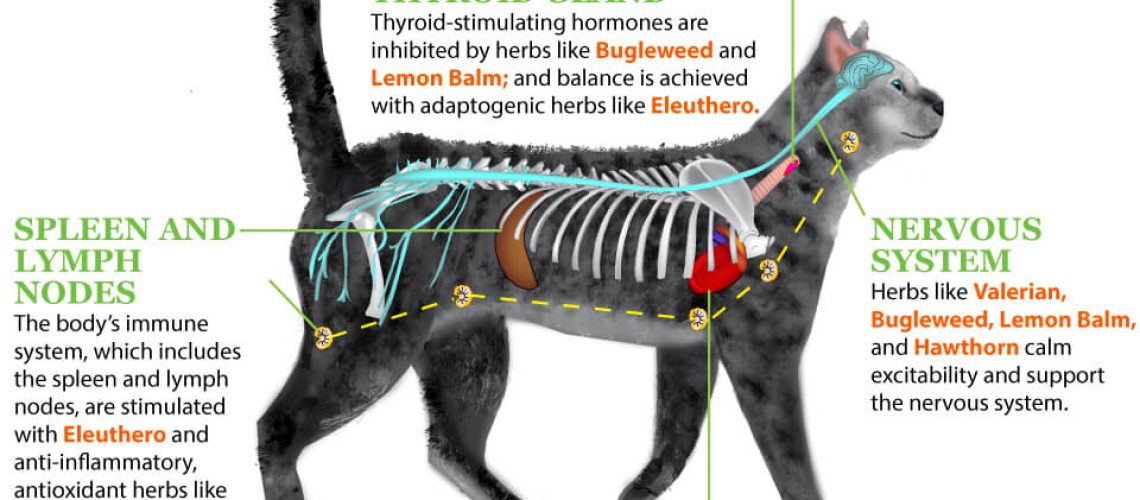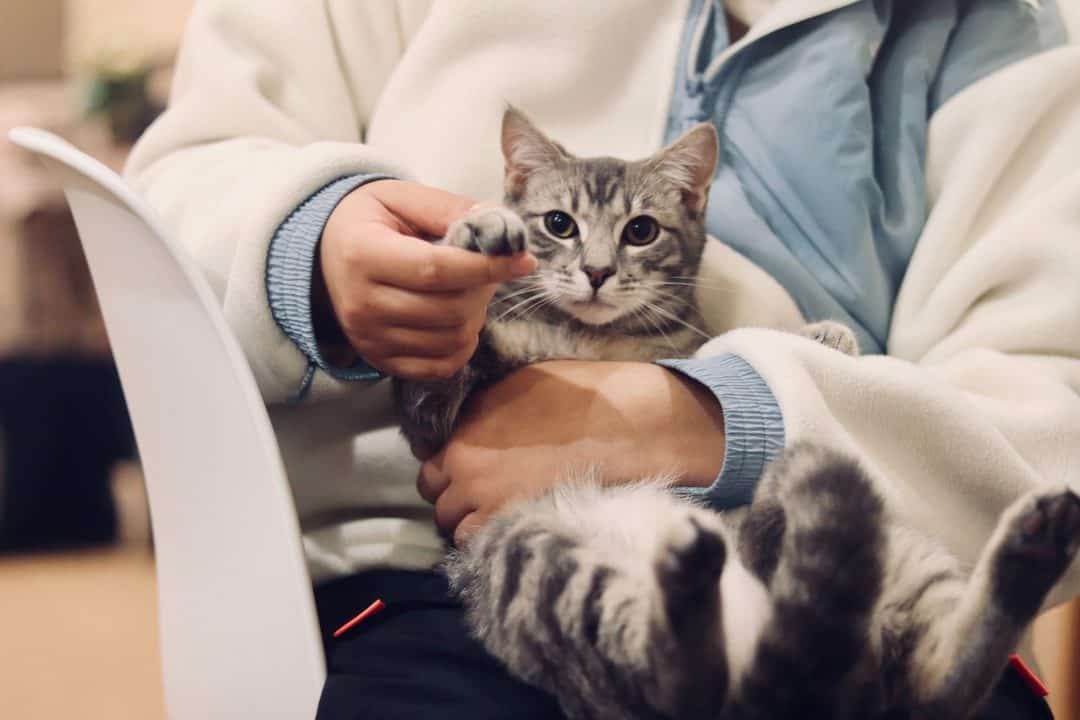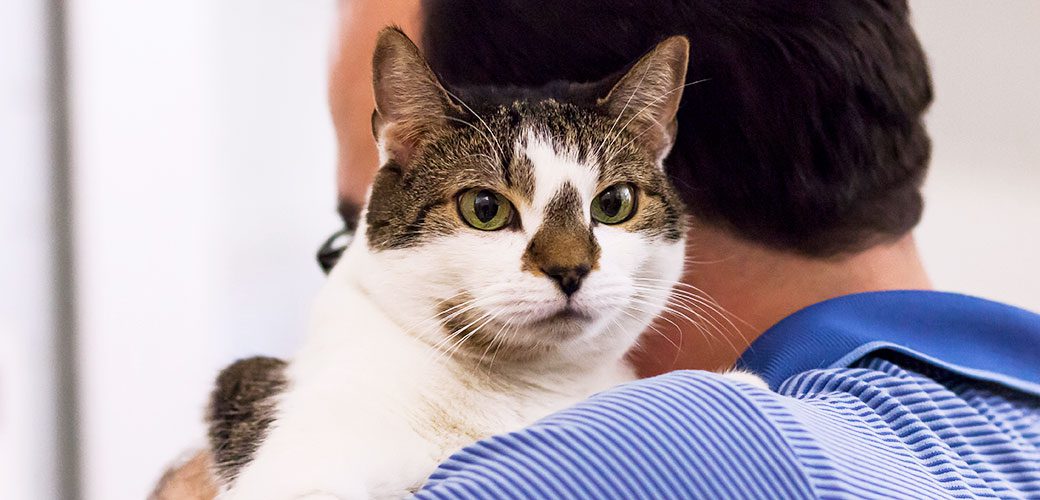Are you a cat lover? Do you want to ensure that your feline friend lives a long and healthy life? Then, understanding the topic of balancing the thyroid and treating hyperthyroidism in cats is essential for you! Hyperthyroidism is a common condition in cats, affecting about 10% of senior cats. But don't worry, by delving into this subject, you will gain valuable knowledge on how to manage and treat this condition effectively. Imagine the peace of mind you'll have knowing that you can help your furry companion live their best life. So, let's dive right in and discover the secrets to keeping your cat's thyroid in balance!
Key Takeaways:
- Hyperthyroidism is a common condition in older cats and can lead to various health issues if left untreated.
- Treating hyperthyroidism in cats often involves medication, dietary changes, or radioactive iodine therapy.
- Regular monitoring of thyroid hormone levels is essential to ensure the effectiveness of treatment and adjust medication dosage if needed.
- Surgical removal of the thyroid gland may be considered as a last resort option for cats that do not respond well to other treatments.
- Early diagnosis and prompt treatment can help improve the quality of life for cats with hyperthyroidism and prevent complications associated with the condition.
Understanding Hyperthyroidism in Cats: What You Need to Know
Hyperthyroidism is a common condition that affects cats, particularly older ones. It occurs when the thyroid gland, located in the neck, produces an excess amount of thyroid hormone. This can lead to various health problems for your feline friend. The thyroid hormone is responsible for regulating metabolism, so when there is too much of it, it can speed up your cat's metabolism and cause a range of symptoms.
The exact cause of hyperthyroidism in cats is still unknown, but researchers believe it may be linked to factors such as genetics and environmental factors. While hyperthyroidism can affect any breed of cat, it is more commonly seen in domestic shorthairs and Siamese cats.
What is the Thyroid Gland?
The thyroid gland is a small butterfly-shaped organ located in the neck, just below the Adam's apple. Its main function is to produce hormones that regulate metabolism and control various bodily functions. In cats with hyperthyroidism, this gland becomes overactive and produces excessive amounts of thyroid hormone.
How Does Hyperthyroidism Affect Cats?
Hyperthyroidism can have several effects on your cat's health and behavior. Some common symptoms include:
- Weight loss despite increased appetite
- Increase in thirst and urination
- Vomiting or diarrhea
- Restlessness or agitation
- Poor coat condition
- Rapid breathing or panting
If left untreated, hyperthyroidism can lead to more severe complications such as heart problems and organ damage. It's important to recognize the symptoms and seek veterinary care for your cat.
Diagnosing Hyperthyroidism in Cats
If you suspect that your cat may have hyperthyroidism, a visit to the veterinarian is necessary for a proper diagnosis. The vet will perform a physical examination and may recommend blood tests to measure the levels of thyroid hormone in your cat's body. Additional tests, such as an ultrasound or thyroid scan, may also be conducted to confirm the diagnosis.
The Effects of Hyperthyroidism on Your Cat's Health and Behavior
How Hyperthyroidism Affects Your Cat's Health
Hyperthyroidism is a condition in cats where the thyroid gland produces an excess amount of thyroid hormones. These hormones play a crucial role in regulating your cat's metabolism, heart rate, and other bodily functions. When there is an overproduction of these hormones, it can lead to various health issues for your cat.
One common effect of hyperthyroidism is weight loss despite an increased appetite. This happens because the excessive thyroid hormones speed up your cat's metabolism, causing them to burn calories at a faster rate. As a result, your cat may appear thin or have a bony appearance.
Another effect of hyperthyroidism is increased thirst and urination. The excess thyroid hormones can affect the kidneys' ability to concentrate urine, leading to more frequent trips to the litter box and increased water intake.
How Hyperthyroidism Affects Your Cat's Behavior
Hyperthyroidism can also have an impact on your cat's behavior. Cats with this condition may become more restless and agitated than usual. They may exhibit behaviors such as excessive meowing, pacing, or restlessness during the night.
In some cases, hyperthyroidism can cause behavioral changes that resemble anxiety or aggression. Your once calm and friendly cat may become irritable or easily startled. It's important to understand that these behavior changes are not due to your cat being intentionally difficult but rather a result of the hormonal imbalance caused by hyperthyroidism.
If you notice any unusual changes in your cat's health or behavior, it's essential to consult with your veterinarian for proper diagnosis and treatment options.
Recognizing the Symptoms of Hyperthyroidism in Cats: A Guide for Pet Owners
Common Symptoms of Hyperthyroidism in Cats
Recognizing the symptoms of hyperthyroidism in cats is crucial for early detection and treatment. While some symptoms may be subtle, others are more noticeable. Here are some common signs to look out for:
1. Weight loss despite increased appetite
2. Increased thirst and urination
3. Vomiting or diarrhea
4. Restlessness or agitation
5. Poor coat condition or excessive shedding
It's important to note that not all cats with hyperthyroidism will display every symptom listed above. Some cats may only exhibit a few of these signs, making it even more critical to consult with your veterinarian if you suspect your cat may have this condition.
When to Seek Veterinary Care
If you notice any of the symptoms mentioned above or any other unusual changes in your cat's health or behavior, it's essential to schedule a visit with your veterinarian as soon as possible. Early diagnosis and treatment can greatly improve your cat's quality of life and prevent further complications associated with untreated hyperthyroidism.
During the veterinary visit, your veterinarian will perform a physical examination, conduct blood tests, and potentially recommend additional diagnostic procedures such as thyroid imaging or ultrasound to confirm the diagnosis.
Remember, as a pet owner, you play a vital role in recognizing and addressing potential health issues in your cat. Regular check-ups and open communication with your veterinarian are key to keeping your feline companion healthy and happy.
Treating Hyperthyroidism in Cats: Medication and Other Treatment Options
Medication for Hyperthyroidism
One of the primary treatment options for hyperthyroidism in cats is medication. The most commonly prescribed medication is methimazole, which helps to regulate the production of thyroid hormones. Methimazole can be given orally or applied as a gel to the inside of the cat's ear. It is important to follow the veterinarian's instructions carefully when administering medication to ensure proper dosage and effectiveness.
Radioactive Iodine Therapy
Another treatment option for hyperthyroidism in cats is radioactive iodine therapy. This involves injecting a small amount of radioactive iodine into the cat's body, which targets and destroys the overactive thyroid cells. Radioactive iodine therapy is considered a highly effective and safe treatment, but it does require hospitalization for a few days to ensure proper handling of the radioactive material.
Surgical Removal of the Thyroid Gland
In some cases, surgical removal of the thyroid gland may be recommended as a treatment option for hyperthyroidism in cats. This procedure, known as thyroidectomy, involves removing all or part of the thyroid gland through surgery. While it can be an effective treatment, there are risks associated with anesthesia and potential complications during surgery.
Overall, there are several options available for treating hyperthyroidism in cats, including medication, radioactive iodine therapy, and surgical removal of the thyroid gland. The choice of treatment will depend on various factors such as the severity of the condition and any underlying health issues.
Dietary Changes to Help Manage Hyperthyroidism in Cats
Maintaining a healthy diet is crucial for managing hyperthyroidism in cats. Here are some dietary changes that can help:
Low-Iodine Diet
A low-iodine diet can help reduce the production of thyroid hormones in cats with hyperthyroidism. This involves feeding them specially formulated cat food that is low in iodine. It is important to consult with a veterinarian before making any dietary changes to ensure the cat's nutritional needs are met.
Frequent Small Meals
Instead of feeding your cat one or two large meals, it is recommended to provide frequent small meals throughout the day. This helps prevent excessive weight loss and provides a steady supply of nutrients for the cat's body.
Supplements
Certain supplements, such as omega-3 fatty acids and antioxidants, may be beneficial for cats with hyperthyroidism. These supplements can help support overall health and immune function.
By making these dietary changes, you can help manage your cat's hyperthyroidism and improve their overall well-being.
The Risks of Untreated Hyperthyroidism in Cats: Why Prompt Treatment is Important
Untreated hyperthyroidism in cats can lead to various health complications and risks. Here are some reasons why prompt treatment is important:
Weight Loss and Muscle Wasting
Hyperthyroidism causes an increase in metabolism, leading to rapid weight loss in cats. If left untreated, this can result in severe muscle wasting and weakness, affecting the cat's overall mobility and quality of life.
Heart Problems
Hyperthyroidism puts extra strain on the heart, increasing the risk of developing heart problems such as high blood pressure, heart murmurs, and even heart failure. Prompt treatment can help alleviate these risks and prevent further damage to the heart.
Kidney Disease
Untreated hyperthyroidism can also contribute to the development or worsening of kidney disease in cats. The increased metabolic rate puts additional stress on the kidneys, potentially leading to kidney damage. Early treatment can help minimize the impact on the kidneys and preserve their function.
It is essential to recognize the risks associated with untreated hyperthyroidism in cats and seek prompt veterinary care to ensure the best possible outcome for your furry friend.
Monitoring Your Cat's Health: How Often Should a Cat with Hyperthyroidism Visit the Vet?
Regular veterinary check-ups are crucial for cats with hyperthyroidism to monitor their health and adjust treatment if necessary. The frequency of vet visits may vary depending on individual factors, but here are some general guidelines:
Initial Diagnosis and Treatment
After the initial diagnosis of hyperthyroidism, your cat will require frequent visits to establish an appropriate treatment plan. This may involve medication adjustments or monitoring the response to radioactive iodine therapy. These visits typically occur every 1-2 weeks initially.
Ongoing Monitoring
Once your cat's hyperthyroidism is under control, regular check-ups are still necessary to ensure their condition remains stable. These visits usually occur every 3-6 months and involve blood tests to assess thyroid hormone levels and overall health.
Additional Health Concerns
If your cat has any additional health concerns or complications related to hyperthyroidism, more frequent vet visits may be required. It is important to communicate any changes in your cat's behavior or symptoms to your veterinarian promptly.
By following a regular schedule of veterinary visits, you can ensure that your cat's hyperthyroidism is properly managed and any potential issues are addressed in a timely manner.
In conclusion, treating hyperthyroidism in cats is important for their overall health and well-being. By finding the right balance for their thyroid levels, we can help them live a happier and healthier life.
How long does it take for thyroid levels to stabilize hyperthyroidism?
Typically, symptoms start to improve within a few weeks to months, and treatment with anti-thyroid medication usually lasts for 12 to 18 months. After that, the dosage may be gradually reduced or discontinued if symptoms disappear and blood test results indicate that thyroid hormone levels have returned to normal.
What happens if I stop giving my cat methimazole?
Methimazole is a pill that is taken orally and it functions by inhibiting the production of thyroid hormone. The effects of this medication can be reversed completely, meaning that if the medication is discontinued, most cats will go back to their original thyroid condition.
How long can a cat stay on methimazole?
Nevertheless, this medication needs to be administered continuously, and the dosage may need to be adjusted after a stable dosage has been established. How should I administer methimazole to my cat? (Date: Nov 17, 2021)
How long does it take to balance thyroid hormones?
Due to the extended duration of the hormone's half-life, it typically takes three to four weeks for the thyroid hormone levels in the blood to become stable. Afterward, you will likely undergo TSH testing every four to eight weeks, and the results of these tests will be used to determine the specific treatment for your hypothyroidism.
What is the follow up after hyperthyroidism treatment?
According to the ATA guidelines, after a patient stops taking their anti-thyroid medication, it is recommended to monitor their thyroid function tests every 2-3 months for the first 6 months, every 4-6 months for the next 6 months, and then every 6-12 months thereafter. This recommendation was made on October 29, 2019.
How long does it take for methimazole to lower thyroid levels?
On average, it takes around six weeks for Methimazole to bring T4 levels back to normal. This medication is commonly administered prior to radioiodine treatment and typically before thyroid surgery. Methimazole is typically taken once a day.

















